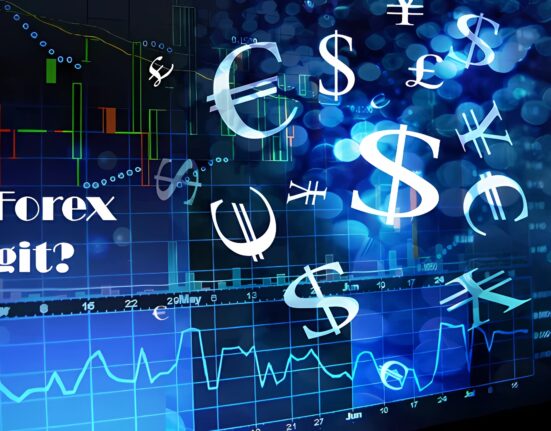Forex trading offers the potential for significant financial gains, but it also comes with risks, including the threat of scams. With market complexity and the increasing number of fraudulent schemes, it’s essential to be vigilant. This article provides expert advice on how to avoid Forex scams, covering the basics, identifying red flags, researching brokers, the role of regulation, protecting your investments, and what to do if you become a target.
Understanding the Basics: What Are Forex Scams?

Forex scams involve deceptive practices designed to steal money from unsuspecting traders. These scams exploit the allure of high returns, often targeting novice traders who lack in-depth market knowledge. Common types of Forex scams include Ponzi schemes, signal seller scams, and fraudulent brokerages.
Identifying Red Flags: Common Forex Scam Tactics

Recognizing potential red flags can save you from falling victim to Forex scams. Here are some common tactics to watch out for:
- Unrealistic Returns: Promises of guaranteed high returns with minimal risk are a major red flag. No legitimate investment can guarantee profits.
- Pressure to Act Quickly: Scammers often create a sense of urgency to push you into making hasty decisions.
- Lack of Transparency: Legitimate brokers will provide clear and detailed information about their operations, including their regulatory status, trading terms, and the risks involved.
- Unsolicited Offers: Be wary of unsolicited emails, phone calls, or social media messages offering investment opportunities or secret tips.
- Complex Fee Structures: Hidden fees and complicated commission structures can be a sign of fraud.
Researching Brokers: Ensuring Legitimacy and Trust

Conduct thorough research to ensure you are dealing with a reputable Forex broker. Here are key steps to follow:
- Check Regulatory Status: Verify if the broker is regulated by a recognized authority, such as the Financial Conduct Authority (FCA) in the UK, the Commodity Futures Trading Commission (CFTC) in the US, or the Australian Securities and Investments Commission (ASIC).
- Read Reviews and Testimonials: Look for reviews from trusted sources and testimonials from other traders. Be cautious of overly positive reviews, as they may be fabricated.
- Visit Their Website: A professional, transparent, and detailed website is often an indicator of a legitimate broker. Check for contact information, regulatory disclosures, and trading conditions.
- Test Customer Service: Reach out to their customer service with questions. Quick, knowledgeable, and helpful responses are a good sign.
The Role of Regulation: Recognizing Certified Brokers

Regulation plays a crucial role in protecting traders from scams. Certified brokers adhere to strict standards and are regularly audited to ensure compliance. Here’s a comparative table of some key regulatory bodies:
| Regulatory Body | Region | Key Features |
|---|---|---|
| Financial Conduct Authority (FCA) | UK | Strong consumer protection, compensation scheme |
| Commodity Futures Trading Commission (CFTC) | USA | Strict regulations, transparency, and reporting requirements |
| Australian Securities and Investments Commission (ASIC) | Australia | Regular audits, investor compensation scheme |
| Cyprus Securities and Exchange Commission (CySEC) | Cyprus | EU passporting rights, regulatory oversight |
Protecting Your Investments: Practical Safety Measures

Implement these practical measures to safeguard your investments:
- Use Demo Accounts: Start with a demo account to familiarize yourself with the trading platform and broker without risking real money.
- Diversify Investments: Avoid putting all your money into one investment. Diversifying reduces risk.
- Educate Yourself: Invest time in learning about Forex trading. Knowledge is your best defense against scams.
- Secure Personal Information: Be cautious about sharing personal or financial information online. Ensure your computer and network security are up to date.
- Regularly Monitor Accounts: Frequently check your trading accounts for any suspicious activity.
Reporting Scams: What to Do If You’ve Been Targeted

If you suspect you’ve been targeted by a Forex scam, take immediate action:
- Cease All Communication: Stop all contact with the suspected scammer.
- Document Everything: Keep records of all communications, transactions, and any other relevant information.
- Report to Authorities: File a complaint with regulatory bodies like the FCA, CFTC, or ASIC. Additionally, report to local law enforcement.
- Notify Your Bank: Inform your bank or payment provider about the potential fraud to secure your accounts.
- Seek Professional Advice: Consult with a legal professional to explore your options for recovering lost funds.
By understanding the basics of Forex scams, identifying red flags, thoroughly researching brokers, recognizing the importance of regulation, and taking practical safety measures, you can significantly reduce the risk of falling victim to fraudulent schemes. Stay informed, remain vigilant, and prioritize the security of your investments.









Leave feedback about this